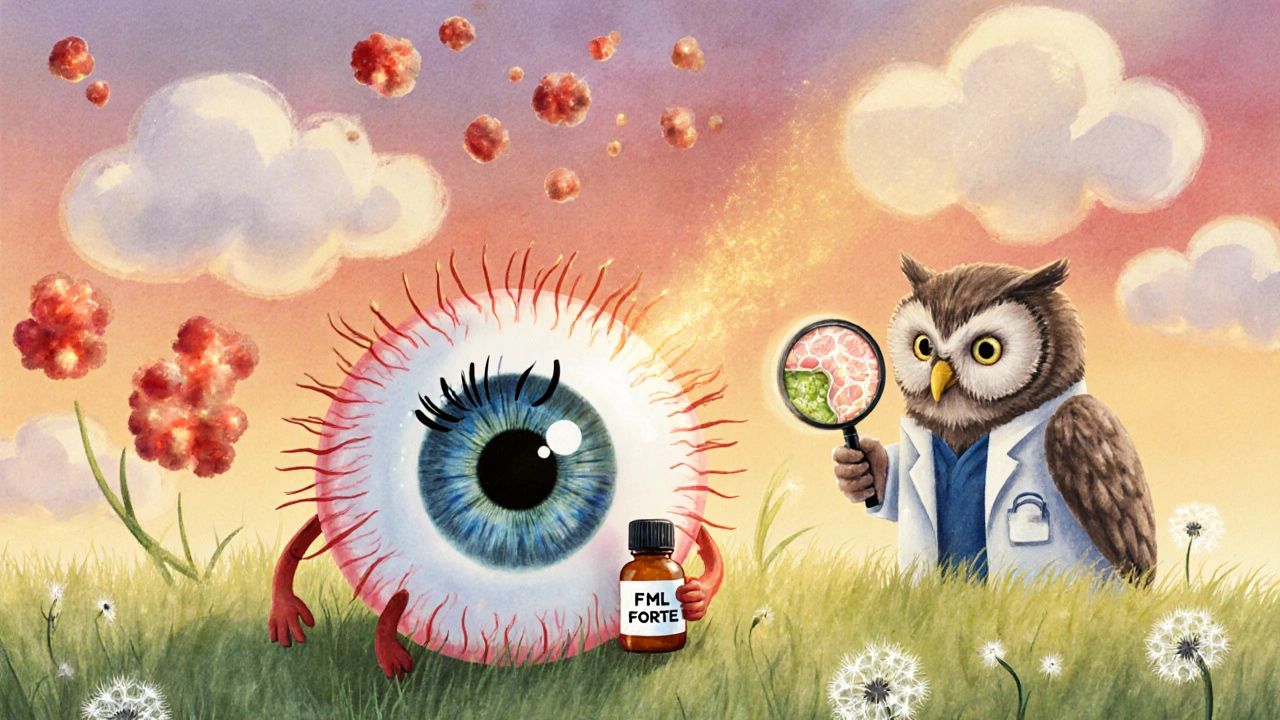Eye Steroid Drops: What They Are, How They Work, and What Alternatives Exist
When your eyes are red, swollen, or burning from inflammation, eye steroid drops, a type of prescription medication containing corticosteroids used to reduce eye inflammation. Also known as corticosteroid eye drops, they work by calming the immune system’s overreaction in the eye tissue. These aren’t your everyday eye drops—they’re powerful, targeted tools doctors use for conditions like uveitis, allergic conjunctivitis, or post-surgery healing. But because they suppress your body’s natural defenses, using them without supervision can lead to serious problems like glaucoma or cataracts.
They’re often paired with other treatments. For example, if you have ocular inflammation, swelling inside the eye caused by autoimmune reactions, infections, or trauma, your doctor might start with steroid drops to bring down the swelling fast, then switch to a slower-acting, safer option. Some people use them after LASIK or cataract surgery to prevent scarring. Others rely on them for chronic conditions like dry eye that doesn’t respond to artificial tears. But if you’ve got an untreated infection, steroids can make it worse—so testing for bacteria or viruses always comes first. Alternatives like non-steroidal anti-inflammatory eye drops, medications that reduce eye inflammation without steroids, often used for milder cases are common for long-term management. They don’t carry the same risks but also don’t work as fast or as strongly.
What you’ll find in the articles below isn’t a list of brand names—it’s a practical breakdown of what works, what doesn’t, and why. You’ll see comparisons between steroid drops and other treatments, real-life use cases, and warnings you won’t find on the bottle. Whether you’re managing post-surgery recovery, fighting seasonal allergies, or dealing with an autoimmune flare-up, the goal is the same: get relief without trading one problem for another. The right treatment depends on your eye’s condition, your medical history, and how long you need to use it. Let’s cut through the noise and find what actually helps.
Compare FML Forte (Fluorometholone) with Alternatives for Eye Inflammation
- Beata Staszkow
- |
- |
- 11
Compare FML Forte (fluorometholone) with safer, cheaper, and non-steroid alternatives for eye inflammation. Learn which drops work best for allergies, dry eye, or post-surgery care - and when to avoid steroids.
View more
